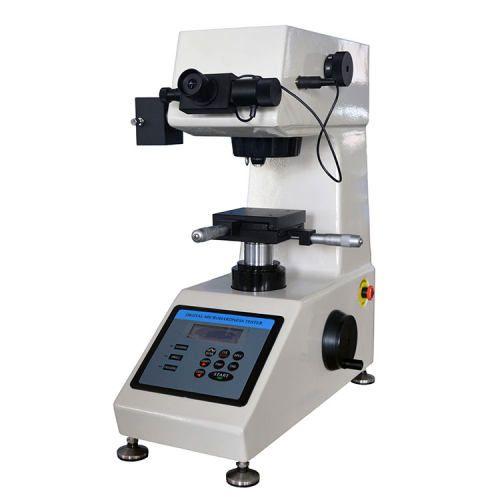A Vickers hardness tester is a versatile tool used to measure the hardness of a wide range of materials, from metals and alloys to ceramics, polymers, and composites. Because of its reputation for accuracy and dependability, it is a well-liked option for a wide range of applications across numerous industries. Here's a closer look at the uses of a Vickers hardness tester:
Material characterization:
l Determining the mechanical properties of materials: Vickers hardness testing offers important information about a material's ability to withstand indentation and scratching, two important properties that indicate strength, resilience to wear, and durability.
l Quality control and assurance: Vickers hardness testing is used in manufacturing processes to verify that materials satisfy the required levels of hardness for the purposes for which they are intended. This guarantees product quality and helps avoid failures.
l Identifying different phases or microstructures: Via Vickers hardness testing, materials with different compositions or microstructures can be distinguished from one another. This is especially helpful when researching composite materials or examining the effects of heat treatment.
Research and development:
l Developing new materials: Vickers hardness testing is a valuable tool for researchers developing new materials with specific mechanical properties. It aids in material formulation optimization and the assessment of the efficacy of various processing methods.
l Understanding material behavior: Analyzing a material's Vickers hardness under various circumstances, like strain or temperature, can reveal important details about how it behaves mechanically and how failure mechanisms work. Gaining this knowledge is essential to enhancing the performance and design of materials.
Specific applications:
l Aerospace industry: The strength and wear resistance of metal, composite, and coated aircraft components are evaluated through Vickers hardness testing.
l Automotive industry: Ensuring the performance and reliability of engine parts, gears, and other essential components is facilitated by testing their hardness.
l Medical device industry: Vickers hardness testing is used to evaluate the biocompatibility and durability of materials used in implants and surgical instruments.
l Construction industry: Testing the hardness of concrete, bricks, and other building materials helps ensure their structural integrity and resistance to wear and tear.
Here are some additional points to remember:
l Vickers hardness testers come in various configurations, from manual benchtop models to machines capable of high-throughput testing.
l The choice of test parameters (load, dwell time) is determined by the material being tested and the desired degree of detail.
l Vickers hardness testing is a damaging test, meaning it leaves a small indentation on the material surface.

